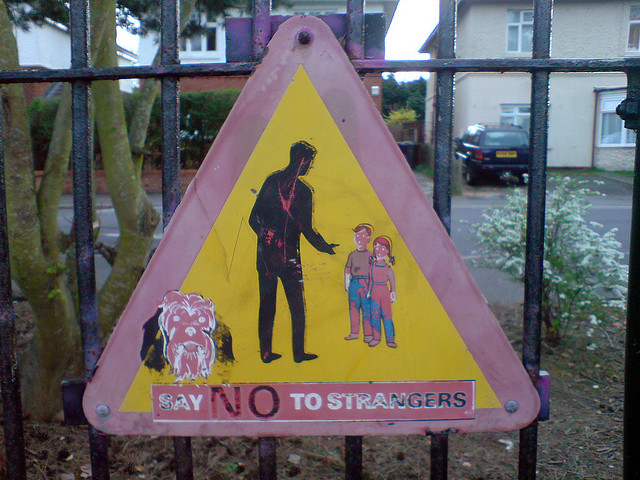
5 Signs of Low Self Esteem in a Child … and What You Can Do About It
A guest post by Coach Rebecca Pintre, from Artemis Mindset Coaching, on recognising the signs of low self esteem in a child, and what parents can do about it.
Self-esteem is the sense of worth a person has about themselves, the value they put on themselves. It is important to have a good balance of self-esteem and a positive yet realistic sense of self-worth. As a coach, low self-esteem is one of the issues I come across frequently. As a mother of two young girls I know that fostering good self-esteem in my daughters is one of my key tasks.
A lack of self-esteem prevents us from setting high aims, stops us from performing at our best, and hinders our achievement of our goals. It can affect every aspect of our lives, from our career, relationships, and influence our physical and mental health well-being.
Here are five red flags to look out for in your children, and some tips to try and help them raise their self-esteem.
Reluctance to Try Something New
Does your child get stressed about doing new activities or going to unfamiliar places? Does she make excuses to avoid going, or is she visibly scared or nervous before a new activity? While some nervousness is normal, it is up to you to define where nerves slip into fear.
What You Can Do
Empathise – before she can step confidently outside of her comfort zone she needs to feel secure in the knowledge that you understand and that you have got her back. Listen to her without judgement or comment, remembering that to you her issue may be small, but to her it is huge.
Baby steps – break the issue down into tiny, manageable steps, and encourage her to feel proud of her effort at each step. Let her set the pace.
Negative self-talk
If she’s talking negatively about herself in conversation, you can bet that internally she is probably being even harsher on herself. If your child announces she is rubbish at something her self-esteem around this issue is obviously low. Be aware of negative comments about her appearance.
What You Can Do
Take Her Seriously – it is very tempting to dismiss your child’s negative thoughts by saying things like “don’t be silly, of course you are good at maths/beautiful/clever/whatever.” It is more useful, however, to try and understand where these negative thoughts are coming from. For example, if your five year old declares he is rubbish at singing, or maths, then ask him: What makes you say that?
Lead by Example Do you tell your daughter that you are clueless about science, rubbish at maths, no good at sport? Does your daughter see you look in the mirror and grimace at your appearance? Do you use negative adjectives to describe yourself in conversation? Try listing some things that you are good at, as Rebecca explains here.
Difficulty Accepting Praise
When you compliment your child how does he react? Does he look pleased, and proud, and accepting of your compliment? Or does he look uncomfortable, or try and dismiss what you say? In short, does he believe you?
What You Can Do
Make it a Habit: Teach him to smile and say “thank you” when he receives a compliment. Practice it. Making the acceptance of compliments a habit, rather than something to be resisted, downplayed or dismissed is half of the battle.
Lead by Example: Again, do you set a bad example? What do you say when someone praises your outfit, your work or any other talent you may have? Practice saying a simple, “thank you”, when you are complimented.
Difficulty Accepting Criticism
Children with low self-esteem often find it very difficult to accept anything they perceive as criticism as it reinforces their low opinion of themselves. Learning how to accept constructive criticism is an important life lesson, so this is a tricky balance to find.
What You Can Do
Reframe Criticism – present it in a different way. For example, explain that criticism is a positive thing, as it allows us to see our strengths and weaknesses, and build on them for more success.
Discussing Criticism Openly – and ask your child what he can learn from it. This can help him gain perspective, whether the criticism he received is constructive criticism he can use to improve, or the type of criticism that reflects badly on the critic.
Gives up Easily
When your child is learning something new does she persevere until she manages it or does she quickly say she can’t manage it, can’t learn it or doesn’t know how to do it? Children with low self-esteem may quickly give up when they are trying to push themselves due to their fear of failure. This may sound counter intuitive, but choosing to give up is easier than admitting defeat, so if they think they will fail, whatever their perception of “failure”, they prefer to take control and give up themselves.
In very young children this may be followed by a tantrum, and older children may divert blame for them not being able to complete the task on an external source. Other children may just quietly give up and not try again.
What You Can Do
Encourage Positive Imagery – ask her to imagine how she will feel once she has achieved whatever it is she’s trying to do, and explain that she can always ask for help and tips.
Help Her Develop Strategies – sit down and work out a strategy to get from where she is to where she wants to be, and help her break down the process into manageable pieces. Give her the space to lead this process: you have a supporting role. If she feels she is in charge this can only help her self-esteem.
Further reading – 6 Ways Social Media Can Boost Kids’ Confidence
Rebecca is a certified life coach, who specialises in helping women discover their inner awesome. She blogs regularly about imposter syndrome, self-confidence and more on her website Artemis Mindset Coaching, and you can follow her on Twitter and Facebook.
Featured Image by D Sharon Pruitt via Flickr








